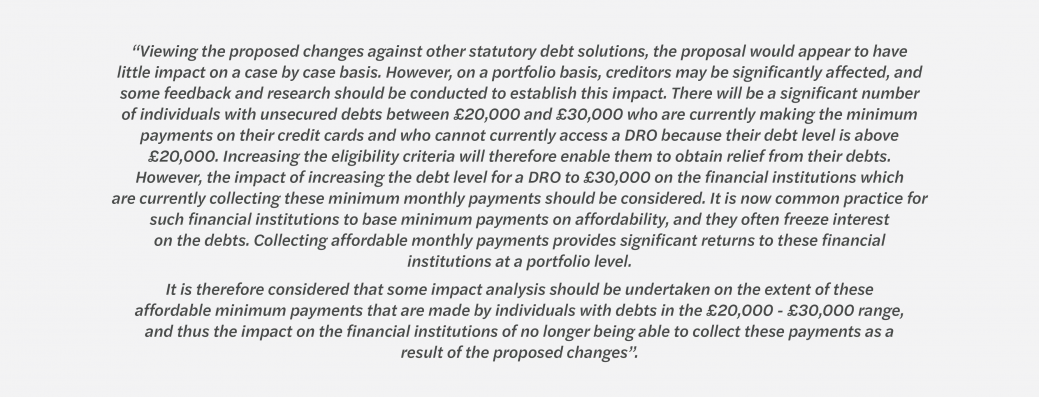The Government will legislate to increase the number of people eligible for Debt Relief Orders (DROs) following a consultation carried out by the Insolvency Service on raising the three eligibility requirements that an individual must meet before being able to obtain a DRO.
The purpose of the consultation was to give more people with low-level assets and low income, and who are in problem debt, access to a suitable and proportionate option for debt relief. The consultation closed in February and over 140 responses were received.
The table below demonstrates the changes to DRO eligibility criteria since their inception.
Consultation
The key issues in the consultation were whether changes to the eligibility criteria were required, proposed increases to the eligibility criteria were reasonable, the proposed changes struck the right balance for debtors and creditors, and that the Government should aim to implement any changes to coincide with the introduction of Breathing Space.
Mazars' Client Services Team submitted the following responses:
Next steps
Now that the consultation has finished, the Insolvency Service has stated:
“Whilst there was a majority of support for the Government’s proposal to raise these limits, the views of the debt advice sector and creditor organisations/insolvency practitioners were particularly polarised in their approaches to the limits consulted on. Having taken account of all views expressed, the Government intends to lay legislation in Parliament at the beginning of June, that will increase:
- the value of assets allowed to be owned by the debtor from £1,000 to £2,000 as proposed in the consultation;
- the value of a single motor vehicle that can be disregarded from the total value of assets from £1,000 to £2,000;
- the level of surplus income received by the debtor before payments should be made to creditors from £50 to £75 per month and
- the total debt allowable for a DRO from £20,000 to £30,000 as proposed in the consultation.
These changes will come into force at the end of June, to coincide with the end of the first 60 day Breathing Space period.
In addition, most responses recommended that DROs should not be looked at in isolation and consideration should be given as to whether changes are needed to the wider personal insolvency framework. The response document, therefore, highlights that the Government will be looking to issue a Call for Evidence on the whole personal insolvency landscape, in due course.
These changes will apply to England and Wales only as personal insolvency is devolved to Scotland and Northern Ireland.”
Get in touch
If you would like to discuss the above with a member of our Insolvency Team, please use the button below:
Contact us today









